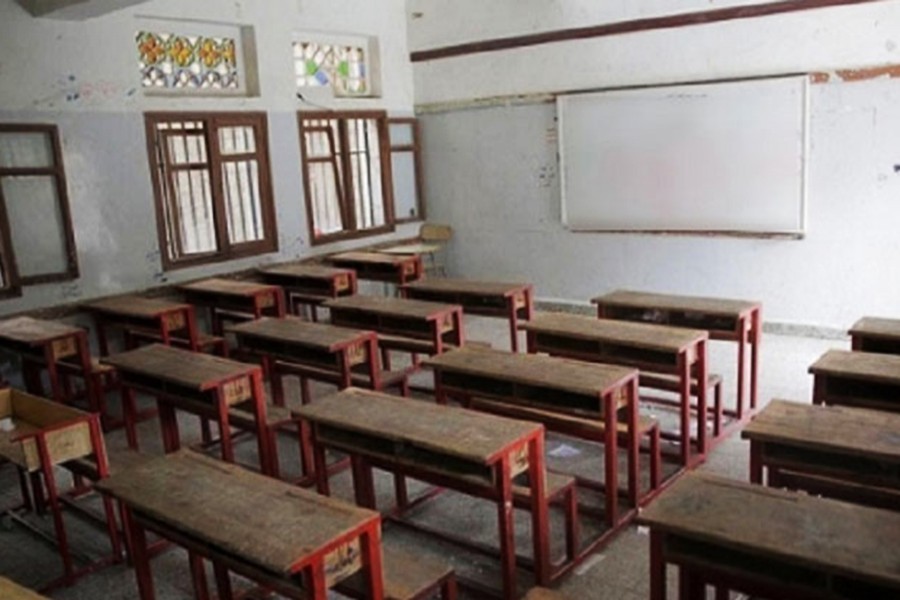Many countries not implementing remedial programmes after school closures, finds study
A new UNESCO, UNICEF, World Bank and OECD report documents education responses to COVID-19 in 142 countries

Published :
Updated :

Around one in three countries, where schools are or have been closed due to Covid-19 pandemic, are not implementing any remedial programmes for the students as yet, according to a UNESCO, UNICEF, World Bank and OECD study.
At the same time, only one-third of countries, most of which are high-income ones, are taking steps to measure learning losses in primary and lower secondary levels, the study said.
"Measuring learning loss is a critical first step towards mitigating its consequences. It is vital that countries invest in assessing the magnitude of such losses to implement the appropriate remedial measures," said Silvia Montoya, Director, UNESCO Institute for Statistics.
The study, titled "Survey on National Education Responses to COVID-19 School Closures", documents how countries are monitoring and mitigating learning losses, addressing the challenge of reopening schools and deploying distance learning strategies.
In total, 142 countries responded to the survey that covers the period from February to May 2021 and spans pre-primary, primary, lower secondary and upper secondary level schools.
Less than a third of low- and middle-income countries reported that all students had returned to in-person schooling, heightening their risk of learning loss and drop-out, it says.
However, a majority of countries reported of using at least one form of outreach to encourage students' return to school, including community engagement, school-based tracking, modification to water, sanitation and hygiene services, financial incentives and review of access policies, it said.
"Remedial instruction is vital to help those children who have missed out on school to get back on track and reduce long-term learning losses”, stressed Jaime Saavedra, Global Director for Education, World Bank.
This requires an urgent effort to measure students' learning levels and collect good quality data to inform classroom practices, as envisioned under the UNICEF, UNESCO, and World Bank's Learning Data Compact, Jaime pointed out.
"Remote learning has been a lifeline for many children around the world during school closures. But for the most vulnerable, even this was out of reach. It is urgent that we get every child back into the classroom now”, said UNICEF Global Chief of Education Robert Jenkins.
“But we cannot stop there; reopening better means implementing remedial programmes to help students get back on track, and ensuring that we prioritise girls and vulnerable children in all our efforts”, Robert Jenkins added.
sajibur@gmail.com


 For all latest news, follow The Financial Express Google News channel.
For all latest news, follow The Financial Express Google News channel.